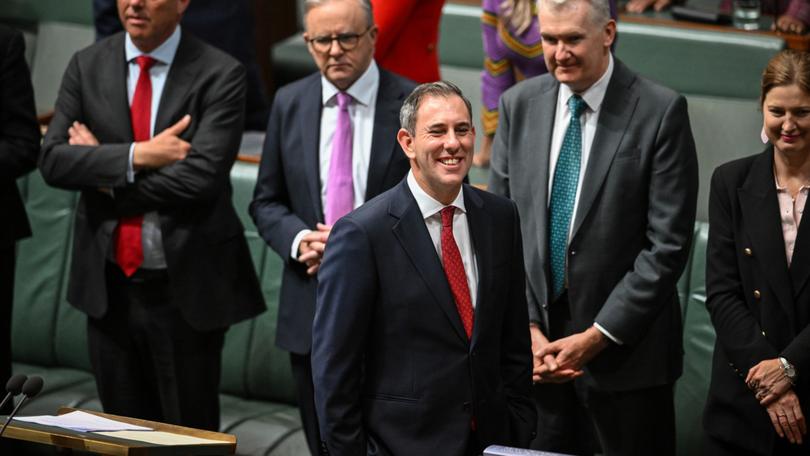Federal Budget 2024: Measures kill off chances of RBA rate cut this year, S&P says
There will be no interest rate cuts this year, one of the world’s leading credit agencies says, due to immense spending pressures in Treasurer Jim Chalmers’ Federal Budget.

There will be no interest rate cuts this year, one of the world’s leading credit agencies has said in the wake of Treasurer Jim Chalmers’ Federal Budget, which has highlighted immense spending pressures.
Dr Chalmers insisted on Budget Day and again after giving his speech in Parliament on Tuesday night that the Budget was “making a big effort” to bring inflation lower, but a raft of measures including a $300 universal power bill relief and Commonwealth Rent Assistance increases have drawn criticism from economists.
S&P Global Ratings said strong tax receipts — thanks to high export prices, nominal economic growth, higher migration and a tight labour market — were “papering over emerging spending pressures”, particularly in social welfare and defence.
Sign up to The Nightly's newsletters.
Get the first look at the digital newspaper, curated daily stories and breaking headlines delivered to your inbox.
By continuing you agree to our Terms and Privacy Policy.Fiscal policy was now more expansionary, S&P said, and new spending could widen the Budget’s future cash deficits.
“New policy measures could be mildly inflationary,” it said.
“Rent assistance or electricity rebates ... put more money into consumers’ pockets to spend on other goods and services. Consequently the “last mile” of the RBA’s inflation fight could remain challenging.
“We no longer expect the RBA to cut its policy rate in calendar (year) 2024.”
Dr Chalmers pushed back on suggestions the Budget was not helping the broad push to get inflation lower, saying after his speech that “the Budget is making a big effort in that regard”.
An interest rate cut was not the “only measure of a decent Budget”, he said, adding he was “very confident ... we’re putting downward pressure on inflation”.
The Budget papers themselves suggest rate cuts are unlikely until next year but many economists — including at all four major banks — had suggested one could occur in November.
Veteran Budget watcher and economist Chris Richardson said the Budget failed to pass the test of not poking “the inflationary bear”.
“The government said it would be careful not to frontload its new costs. But that’s exactly what it did – and its new dollars are both big and fast,” he said.
“In the coming year they’re eight times the size of what they are by 2027-28.”
Mr Richardson said the Budget narrowed the RBA’s already-narrow path to achieve a soft economic landing to avoid a recession.
“We’re in a hole and we’re still digging,” he said.
“Our decisions are making it harder for the nation to make ends meet over the longer term.”
The broad nature of the electricity price relief — which will not be means tested — has caused concern.
“Cost-of-living relief, primarily delivered through the Stage 3 tax cuts and electricity rebates, is being delivered broadly, rather than targeted at those doing it toughest,” Committee for Economic Development Australia chief economist Cassandra Winzar said.
“Electricity rebates may alleviate headline inflation but will drive spending elsewhere. This risks working against monetary policy.”
